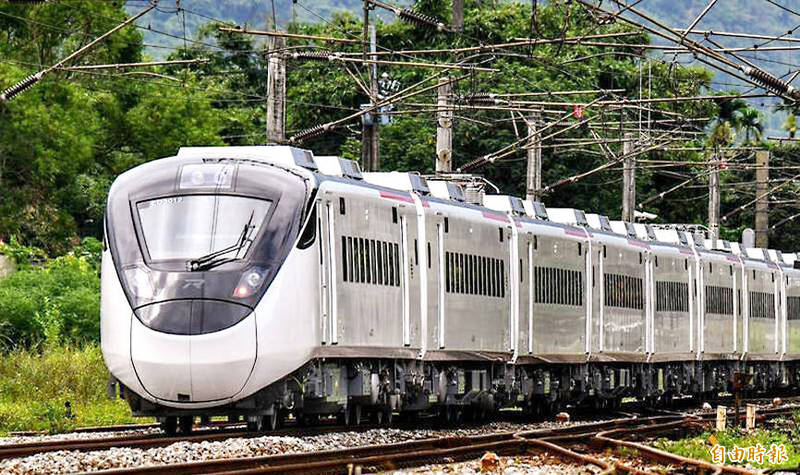《TAIPEI TIMES》 TRA could increase train ticket prices

A Taiwan Railways Administration train is pictured in an undated photograph. Photo: Taipei Times file
CORPORATIZATION: If the government decides not to implement the fare increases aiming to boost the TRA’s revenue, it has to subsidize the difference, an official said
/ Staff writer, with CNA
Taiwan Railways Administration (TRA) Director-General Tu Wei (杜微) said that ticket prices for railway train services could increase in the second half of next year, in the wake of the agency being restructured as a state-run company on Jan. 1.
Tu, who is set to chair the planned Taiwan Railways Corp, spoke to the media on Saturday and said the company’s board is expected to discuss a plan to raise ticket fares during the first quarter of next year.
If the plan is approved, ticket prices would be adjusted in the second half of next year at the earliest, Tu said.
TRA ticket fares have remained unchanged for 28 years.
The fare rate for each passenger is calculated on a per-kilometer basis, and the local train rate is NT$1.46 (US$0.05) per kilometer, while the Chu-Kuang Express train rate is NT$1.75 per kilometer and the Tze-Chiang Express train rate is NT$2.27 per kilometer, the TRA said.
An earlier TRA proposal for a price hike aimed for a 1 percent rate of return, with the per-kilometer rate for local trains to be increased by 27 percent to NT$1.86, while fares for Chu-Kuang Express trains would go up 15 percent to NT$2.02 and Tze-Chiang Express trains’ fares would increase by 11 percent to NT$2.53.
Tu said that after corporatization, the impact of fare adjustments on the new company’s operation would be small, as according to the statutes governing the establishment of the corporation, the government must cover any losses caused by policies.
It means that if the government decides not to implement fare increases to boost the firm’s revenue, it has to subsidize the difference between the proposed fare increase and the original fare, Tu said.
He was certain train services would run as normal during the Lunar New Year holiday, Tu said, adding that a widely-reported personnel shortage in key roles is to be addressed before the holiday in February next year.
There have been reports saying that more than 1,000 TRA employees could retire or resign in the first six months after corporatization to claim voluntary retirement and resignation incentives with a maximum of seven months’ salary available, leaving the company understaffed.
As of early last month, 978 of the company’s 16,326 employees had applied to quit in the first half of next year, including 374 who perform key duties as drivers, maintenance and repair workers, deputy station masters, train conductors and dispatchers, TRA statistics showed.
The TRA has revised its forecast for the number of employees expected to retire or resign during the period from 1,300 to 1,100, Tu said.
Train services would not be affected as the TRA has trained a number of new employees to fill key job vacancies before the end of next month, he added.
The TRA has also recruited more than 800 employees through the government’s special railway examination and many others through senior and junior civil-service examinations, as well as the TRA’s own recruitment process, he said, adding that the new employees would come onboard in February.
Tu said he believes it is possible to turn the agency’s operating performance around, as it would be more flexible, efficient and independent after its restructuring from a government agency into a state-run company.
TRA’s main short-term debt of about NT$170 billion is to be transferred to a special purpose fund established by the Ministry of Transportation and Communications, and the losses incurred due to the execution of government policies are to be covered by the government, he said.
Taiwan Railways Corp would need to take out a bank loan of NT$5 billion in the period following its formation, but that is expected to be fully paid back in 2026 when the company starts to make profit, Tu said.
新聞來源:TAIPEI TIMES


















